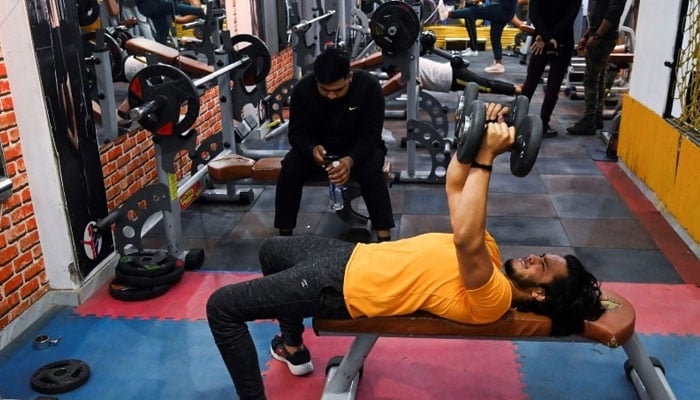Stop exercising: New study says it may be aging you faster — Find out how?
Researchers at the University of Jyvaskyla discovered that physical exercise may be harmful to one's health
Exercise may not be the secret to life – in fact, too much movement may be hastening the ageing process in our bodies, as per Scandinavian experts and a recent study.
The complex study has yet to be peer-reviewed, but it recently earned a national sports medicine prize in Finland, where the research was done over 45 years.
Several studies have already established that those who exercise regularly have longer and healthier lives.
This time, however, researchers at the University of Jyvaskyla discovered that physical exercise may only be a minor part of the bigger picture, and in certain circumstances may be harmful to one's health.
This recent combination may demonstrate that Chinese street hawkers are no longer immune to ludicrous TikTok food combos than we are in the West.
Between 1975 and 2020, around 11,000 Finnish identical twins were analysed for the study.
The participants self-reported their daily physical activity duration and intensity and were divided into four groups: sedentary, moderately active, active, and extremely active.
Overall, people who exercised the least were around 20% more likely to die over 45 years than those who exercised regularly.
When they screened for lifestyle characteristics including education, BMI, smoking, and alcohol intake, the figure dropped dramatically.
The inactive group was thus just 7% more likely to die than the active group, with "no additional benefits provided" by increasing activity levels.
As the ancient adage goes, "everything in moderation."
The study found that people who exercised too little or too much increased biological ageing.
Those who were the most physically active were around 1.8 years "older" than those less physically active.
The researchers determined that people who exercise live longer lives not because of their exercise, but because they live better lives in general.
While the amount of time spent actively by each group was not immediately apparent, the World Health Organisation recommends that adults aged 18 to 64 engage in 150 to 300 minutes of moderate-intensity aerobic physical activity or 75-150 minutes of vigorous-intensity aerobic physical activity per week.
The concentration on twins, according to Dr George Savva, a senior research scientist at the Quadram Institute, a food and health research centre in Norwich, England, offered the Finnish study a "powerful research design."
However, the expert cautioned that the researchers' use of BMI filters, which may be influenced by physical activity, may have skewed some of the effects of exercise.
-
Late James Van Der Beek inspires bowel cancer awareness post death
-
Bella Hadid talks about suffering from Lyme disease
-
Gwyneth Paltrow discusses ‘bizarre’ ways of dealing with chronic illness
-
Halsey explains ‘bittersweet’ endometriosis diagnosis
-
NHS warning to staff on ‘discouraging first cousin marriage’: Is it medically justified?
-
Ariana Grande opens up about ‘dark’ PTSD experience
-
Dakota Johnson reveals smoking habits, the leading cause of lung cancer
-
Chris, Liam Hemsworth support their father post Alzheimer’s diagnosis












